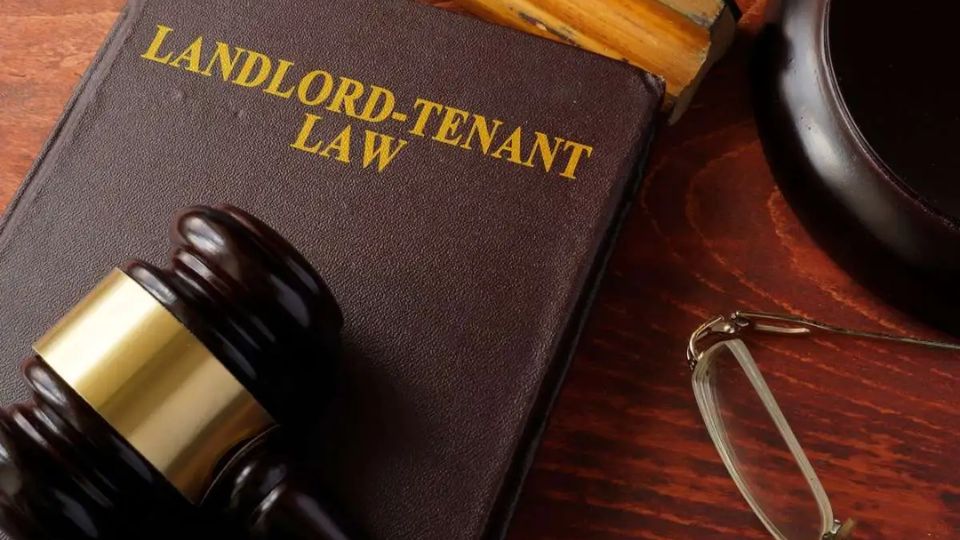House rental laws aim to protect both landlords and tenants. Both parties should make an effort to understand the relevant rent and housing laws. Many landlords aim to generate income from their rental properties. It is important for them to protect their investments. Tenants desire a secure and tranquil living environment. Knowing your legal rights and obligations as a landlord can help you safeguard yourself and your investment property.
Understanding Federal Landlord Tenant Laws
Two important federal statutes that can affect landlords and property managers are the Fair Housing Act and the Fair Credit Reporting Act. The Fair Housing Act makes it illegal to discriminate against current and potential tenants because of their race, color, national origin, religion, sex, familial status, or disability. Landlords must ensure they do not exclusively advertise their rental properties to certain demographics.
The Fair Credit Reporting Act outlines when a landlord can check a tenant’s credit history for screening purposes. As per the Act, a landlord needs to get a housing applicant’s consent before asking for a copy of their credit report. The landlord needs to inform the housing applicant about the credit reporting agency used and whether the credit report influenced the decision to deny the apartment or had any negative effects on the applicant.
Important Landlord Tenant Law
1) Discrimination Laws
Make sure to follow all relevant rental rules and regulations when promoting your property and evaluating potential tenants. Apply the same evaluation process to all tenancy applicants.
2) The Lease
It is the landlord’s responsibility to make sure the rental contract is legally valid. Make sure the rental contract includes lease terms, monthly rental rates, and the names of all tenants.
Some jurisdictions mandate legal disclosures, including security deposit information. Furthermore, the lease must contain all provisions required by local and state law. Tenants may be required to get renters insurance as part of the lease agreement.
3) Laws About Necessary Disclosures
Many states mandate that landlords inform tenants about important state laws, specific landlord regulations, and details about the rental in the lease agreement or through another written method. This notification is usually given before the tenant moves in.
Each state has its own set of regulations, but typical disclosures that might be required in your lease agreement involve informing about mold. An alert about sexual offenders and recent deaths that may have occurred at the property. Information about lead-based paint or other possible health or safety concerns related to the property.
Also Read: Colorado Cannabis Laws 2024 You Must Need to Know!
4) Laws for Maintaining a Safe Environment
Landlords must ensure that the rental unit is kept in good condition for tenants to live in. This implies that the property must be devoid of any major issues. Particularly those that could be harmful to the tenant. The landlord should ensure that the unit is free of any insect or pest infestations before a tenant moves in. Landlords can avoid this obligation in many states by specifying in the rental rules and regulations that pest control is the tenant’s responsibility.
5) Regulations on Repairs
Tenants must inform the landlord about any needed repairs as outlined in the lease agreement. Landlords must promptly address those reports and make sure repairs are done quickly. If a repair that threatens the tenant’s health or safety is not completed by the landlord, the tenant may have the right to withhold rent. For example, a malfunctioning heater in extremely cold weather.
6) Understanding Security Deposit Regulations
Typically, tenants are asked to provide a security deposit to cover potential damages that may occur throughout the lease period. Landlords can only keep the security deposit if it was used for overdue rent or property repairs.
It is important for the landlord to give the renter a detailed list of deductions and refund any remaining security deposit. When a landlord does not provide a detailed statement or return the remaining security deposit. The landlord might end up with more than just the security deposit they received from the tenant.
7) Regulations on Renters’ Privacy Rights
Landlord tenant laws are designed to protect a tenant’s right to live in a property without any disruptions. Once a tenant has moved in, the landlord cannot enter the property unless there is a valid reason. It is important for the landlord to provide the tenant with sufficient notice before entering the rental property, as required by landlord laws, typically 24-48 hours in advance, unless there is an emergency.
8) Laws Regarding Abandoned Tenant Property
If a tenant leaves property without warning, the landlord must consider it abandoned. The landlord needs to explain to the renter the process for claiming their personal belongings. Information about the cost and location of the off-site storage where the items were moved, as well as details on when the tenant can retrieve their property.
If the property is not claimed and its value is above a certain threshold, the landlord can auction it publicly. If the property is worth less than the value specified by the state. The landlord can choose to keep it or dispose of it based on the house rental law.
9) Regulations Regarding Recognized Criminal Behaviors
When a landlord discovers that a tenant is engaging in criminal activities. Notify authorities right away. Landlords are typically accountable for ensuring the safety of their rental property’s neighborhood and may face legal repercussions if their tenants engage in criminal activities on the premises.
10) Regulations Regarding Safety Features
Ensuring the safety and well-being of your tenants is a crucial part of being a landlord. Landlords must supply safety devices like fire extinguishers, peepholes in exterior doors, deadbolt locks, and window locks.



Leave a Reply